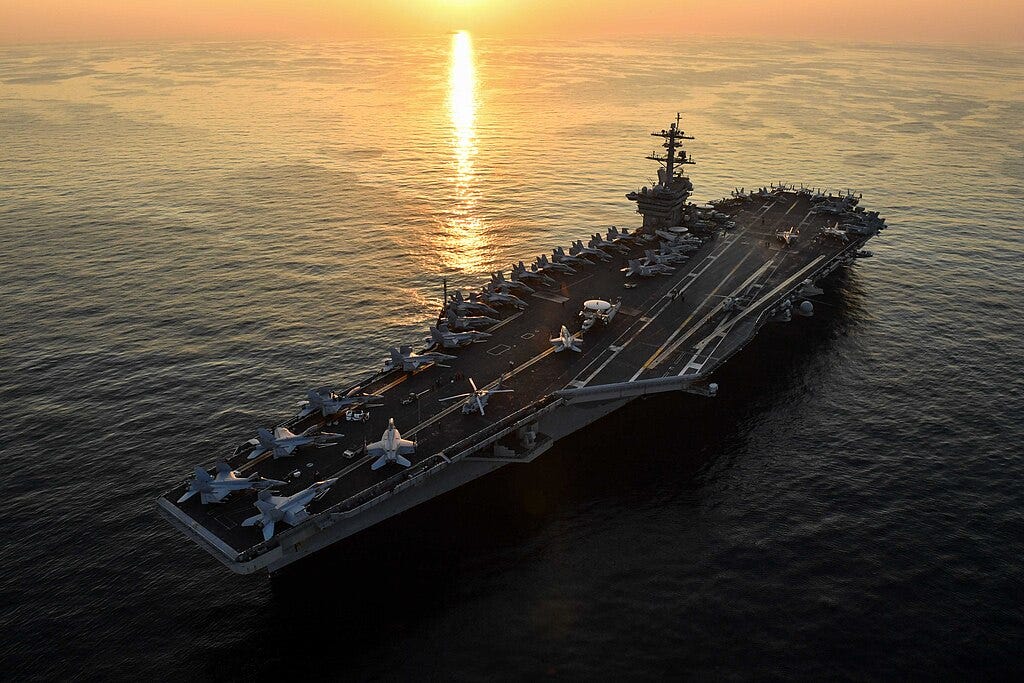Gulf States Maneuver Between U.S. and China on Security Deals
Saudi Arabia and the UAE hedge between U.S. security guarantees and expanding defense and tech ties with China.
The Gulf monarchies are walking a careful tightrope. Saudi Arabia and the UAE still rely on U.S. security guarantees—the backbone of Gulf stability since the Carter Doctrine—but they are simultaneously deepening defense and technology ties with China. Drone sales, AI research partnerships, and joint infrastructure projects point to a wider alignment than Washington is comfortable with.
Image: “USS Theodore Roosevelt (CVN 71) transits the Arabian Gulf,” by Mass Communication Specialist 3rd Class Anthony J. Rivera, CC BY 2.0
For Riyadh and Abu Dhabi, this is pragmatic diversification. They see a world shifting from U.S. unipolar dominance to multipolar rivalry, and hedging between great powers feels like insurance. In Washington, however, alarm is mounting: Chinese-built 5G networks, AI ventures, and defense sales could erode long-standing U.S. influence in the Gulf.
The stakes are immense. The Gulf is not just about oil; it is the cockpit of global trade routes, energy security, and religious authority. If U.S. dominance wanes, could China—or Russia—step in as guarantors of stability? Or would the region slip into uncertainty?
For now, Gulf leaders believe they can balance: U.S. fighter jets for deterrence, Chinese partnerships for technology and economics. But the longer this balancing act lasts, the more likely they will be forced to choose.
Our Take: The Gulf’s red line is ambiguity itself. How long can these states maneuver without triggering a decisive rupture with Washington—or Beijing?

